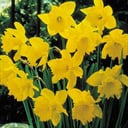What is this popular Indian street food?
Panipuri (originally named "Jalapatra" in Sanskrit from ancient Mahabharata times), golgappa, or Pani ke patashe, is one of the most popular street foods (prepared or cooked food sold by vendors on a street or other public locations) of India. Panipuri consists of a round hollow puri (a deep-fried crisp flatbread), filled with a mixture of flavoured water (known as imali pani: tamarind water), tamarind chutney i.e. a sauce or relish, chili powder, potato mash, onion, or chickpeas. It is tangy rather than sweetish while the water is sour and salty.
Panipuri's name varies depending on the region. "panipuri" in Maharashtra; "pani patashe" in Uttar Pradesh and Madhya Pradesh; "phuska" in Gujarat; "gup-chup" in Odisha, Andhra Pradesh, Jharkhand and Chattisgarh: "phuchka" in Bengal, Bihar and Nepal. It is popular by the name of "gol gappa" in some parts of Northern India (particularly Delhi and Punjab) and Pakistan. According to anthropologists, panipuri originated in Uttar Pradesh and then spread to the rest of India mainly due to migration of people from one part of the country to another in 20th century. It is also popular in Bangladesh, Bhutan, Maldives, Nepal, Sri Lanka, Pakistan and Afghanistan.
It is popularly known as "Water Balls" among the foreign tourists who love that spicy and tangy flavour of water. Also, it is Indian girls favourite street food. On 10 March 2005, "pani puri" was added to the Oxford English Dictionary.
More Info:
en.m.wikipedia.org



